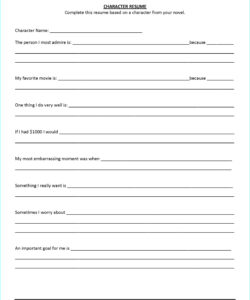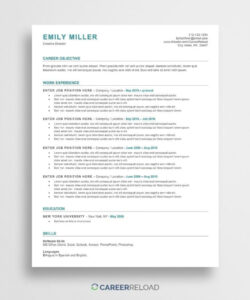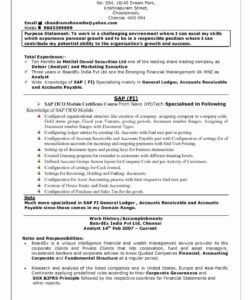When it comes to landing a job in law enforcement, acing the interview is crucial. And while your skills, experience, and preparation are undoubtedly important, your appearance also plays a vital role. Knowing what to wear to a police interview can help you make a positive first impression and demonstrate your professionalism. In this article, we will guide you through the do’s and don’ts of dressing for a police interview, ensuring you dress for success and stand out from the competition.
First impressions matter, and dressing appropriately for a police interview can significantly impact how you are perceived by the hiring panel. It is essential to opt for a professional and conservative outfit that reflects the serious nature of the job. For men, a well-fitted suit in dark colors such as navy or charcoal is ideal. Pair it with a crisp white or light-colored shirt and a conservative necktie. Avoid flashy accessories or overpowering scents that can be distracting. Women can opt for a tailored pantsuit or a knee-length skirt with a matching blazer. Choose conservative colors and avoid low necklines or skirts that are too short, striving for a polished and professional appearance.
Another aspect to consider when deciding what to wear to a police interview is the organization’s dress code and culture. While it is important to dress professionally, some police departments may have a more relaxed dress code. Researching the department beforehand can give you insights into their expectations and help you dress accordingly. If in doubt, it is better to err on the side of caution and dress more formally than too casually, as it demonstrates your respect and professionalism.
What to Wear to a Police Interview
1. Dress Professionally
When preparing for a police interview, it’s crucial to make a good first impression by dressing professionally. Opt for a well-fitted suit or dress in a conservative color such as black, navy blue, or gray. Avoid flashy patterns or bright colors that may distract the interviewer.
Wear a button-down shirt or blouse with your suit and make sure it is neatly pressed. It’s also important to pay attention to detail and ensure your shoes are clean and polished. Avoid excessive accessories or jewelry that may detract from your professional appearance.
Remember, the way you dress reflects your commitment to professionalism, so it’s essential to present yourself in the best possible light during a police interview.
2. Follow Dress Code Guidelines
Research the specific department or agency you are interviewing with to determine if they have a dress code policy. Some police departments may have specific guidelines on what to wear during the interview process.
What you wear may vary depending on whether you are applying for a sworn officer position or a civilian role within a police department. Follow any dress code instructions provided to ensure you align with the department’s values and expectations.
If no specific dress code guidelines are provided, it’s always best to err on the side of caution and dress more formally.
3. Pay Attention to Grooming
Grooming is just as important as dressing professionally for a police interview. Make sure your hair is neatly styled and well-groomed. Men should have a clean-shaven face or neatly trimmed facial hair.
Ensure your nails are trimmed and clean, as well as your overall personal hygiene. Avoid strong colognes or perfumes that may be overpowering.
Remember, attention to grooming details shows that you take the interview process seriously and understand the importance of presenting yourself in a professional manner.
4. Be Comfortable and Confident
While it’s crucial to dress professionally for a police interview, it’s also important to feel comfortable and confident in your outfit. Choose attire that fits well and allows you to move comfortably.
Being comfortable in your clothes will not only make you feel more confident but also help you focus on the interview questions and showcase your qualifications.
Additionally, wearing appropriate attire that you feel confident in will help you project a positive and professional image, increasing your chances of success in the interview.
5. Prepare for Different Weather Conditions
Consider the weather conditions on the day of your interview when deciding what to wear. If it’s raining or cold, bring an umbrella or wear a coat that complements your professional attire.
Be aware of extreme temperatures and dress accordingly. Layering can be a great strategy as it allows you to adjust your clothing based on the temperature inside the building.
Remember, you want to be comfortable during your interview, so plan ahead and dress appropriately for the weather conditions.
6. Focus on Non-Verbal Communication
What you wear not only affects how you are perceived but also influences your non-verbal communication. Dressing professionally can help you exude confidence and professionalism.
Remember to maintain good posture, make eye contact, and offer a firm handshake when greeting your interviewers. These non-verbal cues, combined with your professional appearance, will leave a lasting impression.
Non-verbal communication is an important part of the interview process, so use your attire to enhance your overall message and show your commitment to the role.
Accessories and Footwear Tips
Accessories and footwear play a significant role in completing your professional attire for a police interview. Here are some tips to consider:
- Choose closed-toe shoes that are comfortable to walk in, such as dress shoes or loafers. Avoid wearing sneakers, flip-flops, or any footwear that may be considered too casual for a professional setting.
- Wear minimal and subtle accessories to maintain a professional image. Opt for a simple watch, understated jewelry, and a professional briefcase or bag.
- Avoid excessive piercings or visible tattoos that may distract the interviewer or go against the department’s policies.
Remember to keep your accessories and footwear professional, polished, and consistent with the overall image you want to portray during your police interview.
Frequently Asked Questions about What to Wear to a Police Interview
Q: Should I wear a uniform to a police interview?
A: No, it is not necessary to wear a uniform to a police interview. Dress in formal professional attire to convey your commitment to professionalism and adaptability.
Q: Can I wear a skirt or a dress to a police interview?
A: Yes, you can wear a skirt or a dress to a police interview, as long as it is conservative and professional. Ensure it is an appropriate length and pairs well with a jacket or blazer.
Q: Can I wear makeup to a police interview?
A: Yes, you can wear makeup to a police interview. Opt for a natural and polished look, avoiding excessive makeup that may be distracting or unprofessional.
Q: Should I bring a bag or briefcase to a police interview?
A: Yes, bringing a bag or briefcase to a police interview is recommended. Choose a professional bag that can hold your documents, notepad, and any other necessary items. Avoid oversized or casual bags.
Q: Can I wear glasses to a police interview?
A: Yes, you can wear glasses to a police interview. Make sure they are clean and well-fitting, and avoid glasses with distracting frames.


